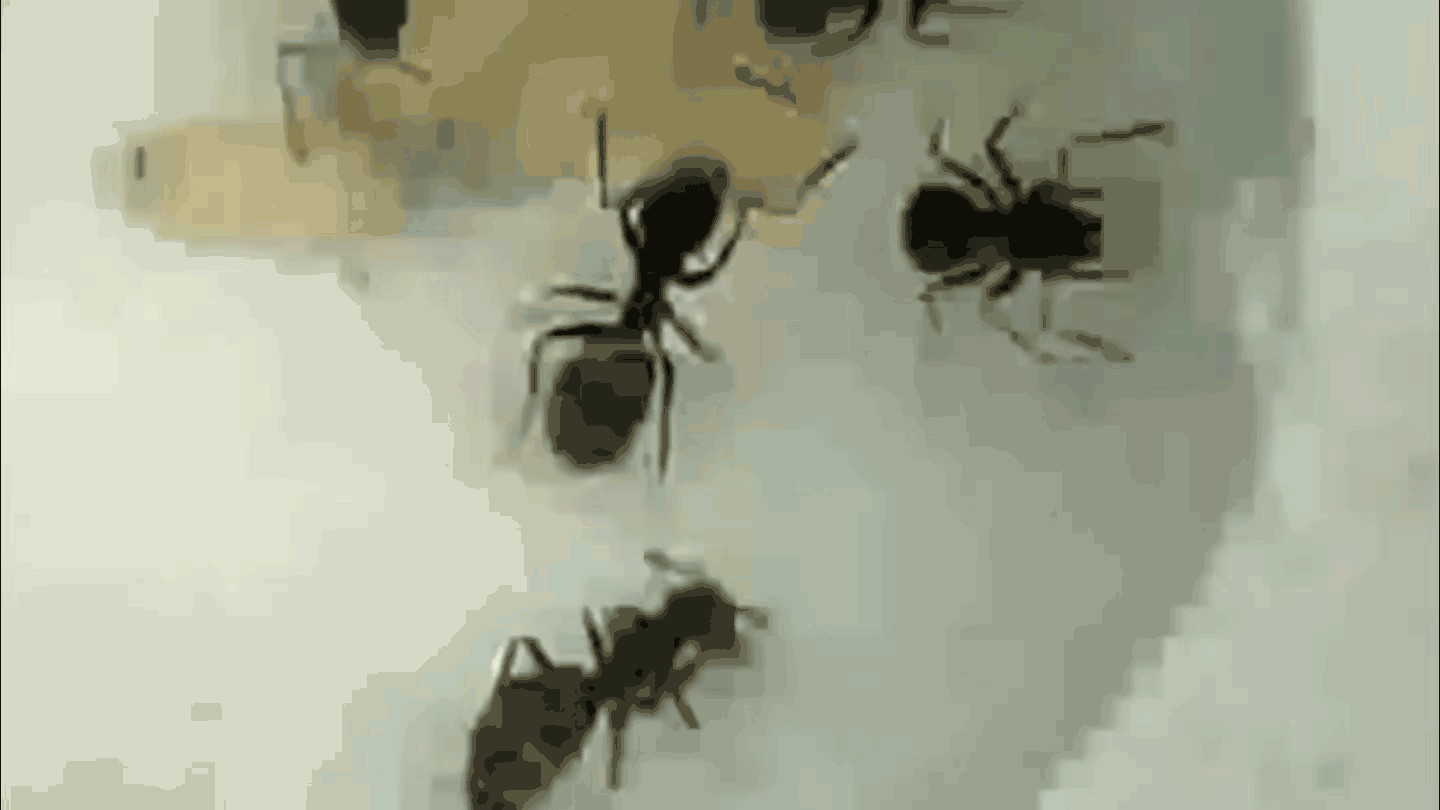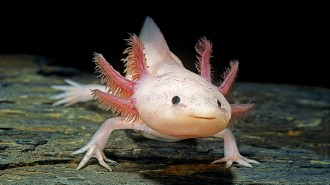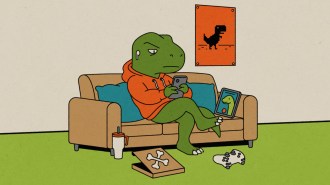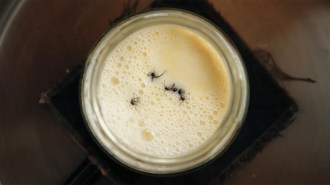- More than 2 years ago
Some people have an excuse for getting only six hours of shut-eye each night. One of their genes makes them do it.
Two people who both sleep about six hours and 15 minutes per night have a rare variation of a gene called DEC2. The variation appears to reduce the need for sleep in the two family members in the study and in laboratory mice and fruit flies, researchers from the University of California, San Francisco and colleagues report August 14 in Science.
People naturally differ in the amount of sleep they need. Scientists already knew that about half the variation in sleep duration is accounted for by genes, says Mehdi Tafti, a geneticist at the University of Lausanne in Switzerland. But the new study is the first to identify a particular gene that controls the amount of sleep in people.
DEC2 is known to be involved in regulating the body’s daily rhythms. So scientists examined the gene in a number of people who naturally sleep less than average, even without an alarm clock. A variation was found in the DEC2 gene in the two women with short sleep periods, but not in their normal-sleeping family members or in 250 other people who also average about eight hours a night. The researchers suspect that very few people have the variation but don’t yet know exactly how prevalent it is in the population.
“This paper will give hope to those people who claim they only need four to five hours of sleep a night,” says David Dinges, a sleep researcher at the University of Pennsylvania in Philadelphia. But he has doubts about these claims, since people are not very good at judging how well they perform after sleep loss, and most people who get little sleep actually need more shut-eye.
People with the short-sleeping form of the gene don’t seem to have any alterations in their daily — or circadian — rhythms and appear healthy and functional despite getting less than the recommended quantity of sleep. In fact, both the women are more energetic than average, says Ying-Hui Fu, the UCSF neuroscientist who led the study. Researchers haven’t tested the study participants for their response to sleep deprivation.
“Right now all we can say is that they sleep less. Whether they need less, we don’t know,” Fu says. Preliminary evidence indicates that variations in several other genes may also lead to shorter sleep times, she says.
To prove that the genetic variant causes the shorter sleeping times, researchers genetically engineered mice and fruit flies with the short-sleep form of the gene. Studies showed that both types of animals slept less than mice or flies with the standard version of the gene.
Because the variant altered the animals’ sleep, the researchers can be confident that they have identified the source of the shorter sleep times in the people, says Paul Shaw, a neuroscientist at Washington University in St. Louis. “That really closes the door. They’ve got it,” Shaw says.
But the mice with the short-sleep form of DEC2 also experienced fragmented sleep, waking more often than normal mice. That could indicate that trying to reduce the amount of sleep needed by altering activity of DEC2 or other genes could lead to unexpected sleep disruptions, Tafti says.
“Sleep is highly complex,” he says. “When you touch it, you may change several parameters.”






